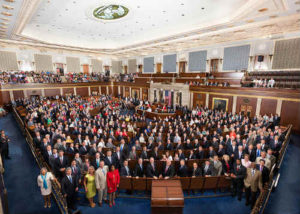As I previously discussed, the Department of Labor created a new overtime rule that will increase the salary threshold for so-called “white-collar” employees to be exempt from overtime. Currently white-collar employees are exempt from overtime if they are paid a salary of $23,660 and meet other job duties qualifications. However, the Department of Labor is increasing that threshold to $47,476. This means white-collar employees earning less than this amount will be entitled to time-and-a-half for all overtime worked. The new rule is set to take effect on December 1, 2016.

Opponents of the new rule, largely Republicans, have already fought hard to prevent the rule from becoming implemented. Senate Republicans initially contemplated blocking the rule by including a rider on this year’s Appropriations bill. Such a rider would cut off funding necessary to implement the rule. However, Republicans did not end up including the rider in the bill, knowing such a rider would likely result in a veto from President Obama.
Senators have also introduced a resolution (S.J. Res. 34) to block the overtime rule. The resolution was only backed by Republicans. The President is required to sign any resolution preventing the rule (per INS v. Chahda, 462 U.S. 919 (1983)), meaning Congress would need a two-thirds vote to override any veto. As President Obama proposed and announced the overtime rule, a veto would be inevitable, and Republicans would be unable to override it.
However, legislators on both sides of the aisle have proposed changes to the new Overtime Rule. This month, Representative Kurt Schrader (D-OR) introduced H.R. 5813. The law would phase in the Department’s overtime rule over a period of three years. It would increase the threshold as follows:
- December 1, 2016: $35,984
- December 1, 2017: $39,814
- December 1, 2018: $43,645
- December 1, 2019: $47,476
GovTrack currently gives the bill a 1% chance of becoming a law. However, we will closely follow this and other related proposed legislation as it will determine whether a large amount of workers are entitled to overtime pay.
